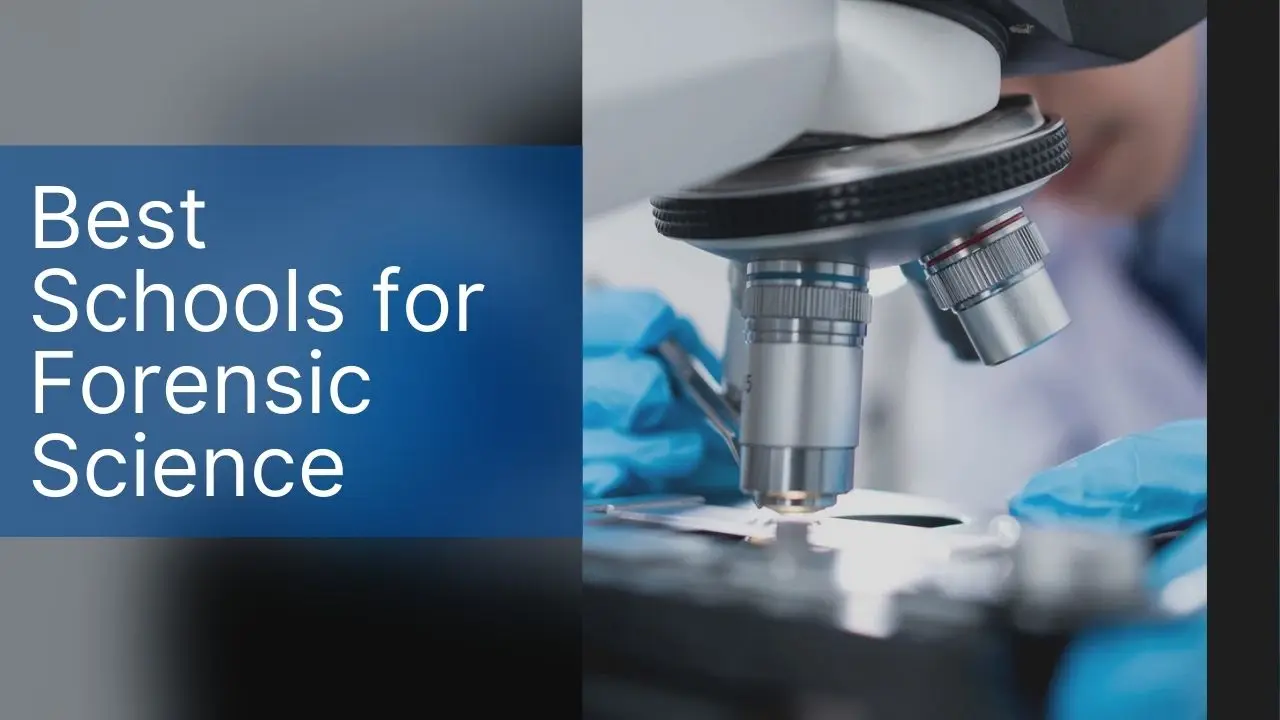One of the most intriguing and significant areas of contemporary criminal justice and scientific inquiry is forensic science. Forensic scientists are essential to unraveling riddles and enforcing justice, from DNA profiling to crime scene analysis. Selecting the best institution is the first step if you have a strong interest in forensic science and wish to work in this exciting profession. This post will discuss the best schools for forensic science, their unique selling points, and how to pick the best course of study for your objectives.
Loyola University Chicago
Students enrolled in Loyola’s Forensic Science program will acquire a wide range of abilities, technical know-how, and an awareness of the criminal justice system in addition to general knowledge in chemistry, biology, mathematics, and physics. Students study chemistry, biology-DNA, and patterns in cutting-edge labs. The Forensic Education Programs Accreditation Commission (FEPAC) has granted the program its accreditation.
Pennsylvania State University
Best schools for forensic science, forensic chemistry, forensic biology, crime scene investigation, and social sciences, Penn State’s forensic science program is an inter-college collaboration among various academic units, offering a foundation in fields such as the biological, physical, and mathematical sciences. Chemistry and biology are the two degree emphases that students can select from. They can benefit from cutting-edge crime scene training facilities and a crime laboratory.
CUNY John Jay College of Criminal Justice
There are three options for majoring in forensic science: toxicology, molecular biology, and criminalistics. Students learn how to collect and analyze scientific data, understand physical and biological science ideas, conduct research, communicate scientific findings, and more, regardless of their area of focus. As a requirement of the program, students must finish an internship. They will also have access to a variety of chances for experiential learning.
University of Central Florida
With two tracks—biochemistry and chemistry—the UCF forensic science program provides students with two distinct perspectives on the field. Students gain knowledge of the tools utilized, scientific writing, how to carry out and assess scientific research, and their future function in the legal system. Additionally, they will get practical experience in a cutting-edge lab.
Syracuse University
As an Integrated Learning Major (ILM), forensic science at Syracuse is designed to support a variety of other majors by exposing students to the area from a variety of angles and encouraging them to utilize their knowledge in a variety of fields. While utilizing a wealth of lab facilities, students will engage in a variety of curriculum and practical field activities. The Forensic and National Security Sciences Institute is housed within the institution.
Saint Louis University
To give students a strong foundation in this nexus of law and science, SLU’s forensic science major draws on the techniques, resources, and viewpoints of biology, chemistry, anthropology, sociology, physics, mathematics, and medicine. Graduates will have a thorough understanding of scientific techniques in a wide range of businesses.
University of Texas at Austin
For students interested in forensic science jobs, UT Austin’s Forensic Science Certificate offers an interdisciplinary viewpoint. The participation is open to all undergraduate students. The debate and forensics department at UT Austin, which was established in 1883 as the Athenaeum Literary Society, offers additional possibilities associated with the subject.
George Mason University
Crime scene investigation, forensic DNA, forensic chemistry, trace evidence, firearms examination, fingerprints, arson, and drug analysis are just a few of the field and lab applications that are covered in George Mason’s Bachelor of Science in Forensic Science program. Forensic Chemistry and Forensic Biology are two paths that students can choose from; both provide a cutting-edge, practical curriculum.
Texas A&M University
The Forensic and Investigative Sciences program at TAMU, one of only two bachelor’s degree programs in Texas to get national accreditation from FEPAC, provides a life sciences-based curriculum that helps students gain practical skills and employ state-of-the-art technology to study the ins and outs of the industry. Students can select between a Pre-Law Emphasis track (which is not FEPAC approved) and a Science Emphasis track.
Hofstra University
The Forensic Science program at Hofstra is an interdisciplinary curriculum that offers foundations in chemistry, biology, physics, arithmetic, law, psychology, and even photography. The university’s labs are equipped with cutting-edge machinery, exposing students to instruments used in contemporary forensic labs. Opportunities, including research, internships, peer teaching, and more, are also available to students.
Conclusion
Best schools for forensic science, Making the correct educational choice is essential to starting a lucrative career in forensic science. The programs that are featured provide students with contemporary labs, practical experience, and solid academics to prepare them for the difficulties of the sector. These prestigious universities offer the resources and instruction necessary to succeed in this fast-paced field, regardless of your interests in biology, chemistry, or crime scene investigation.
